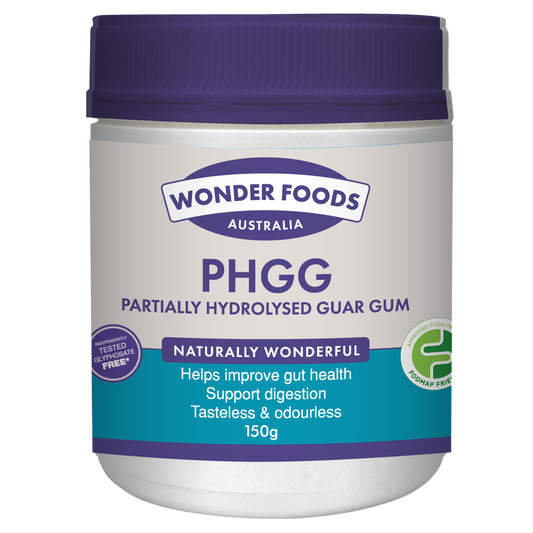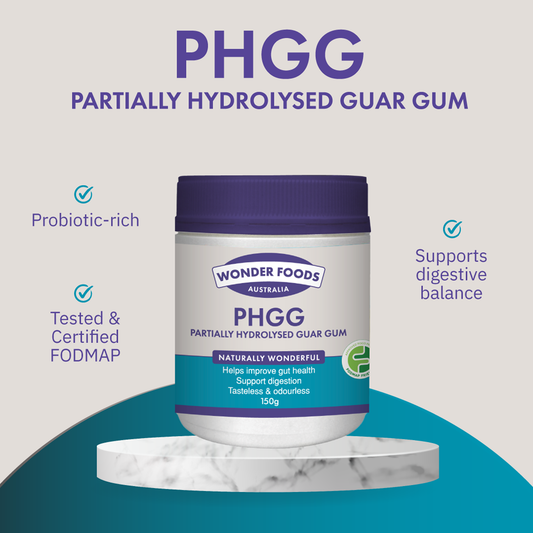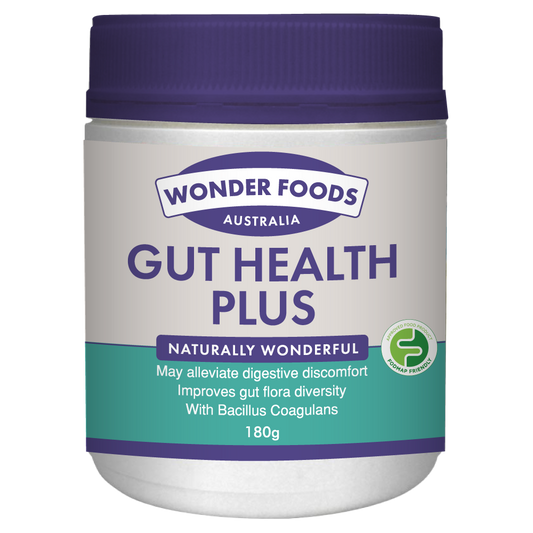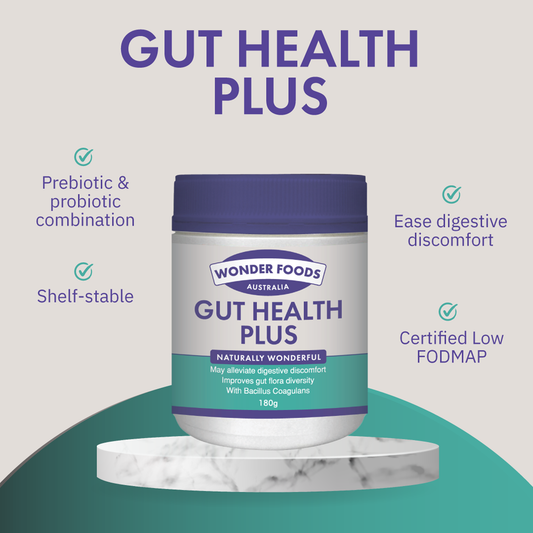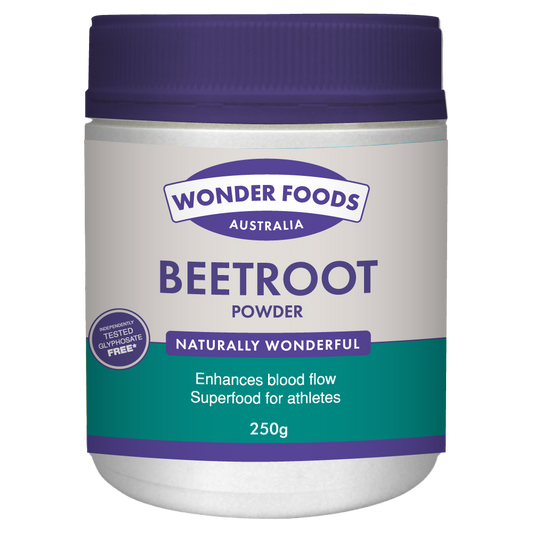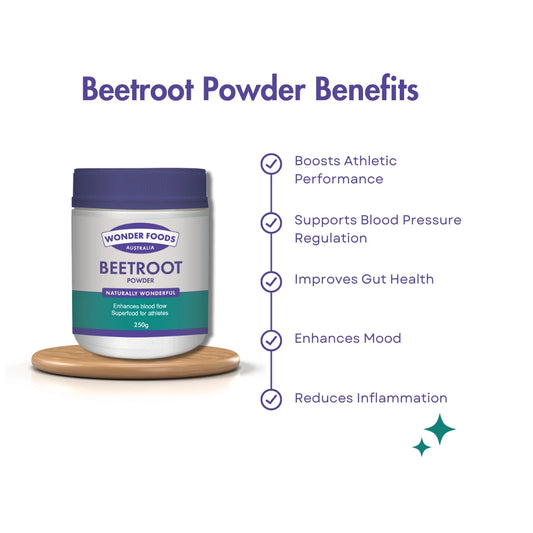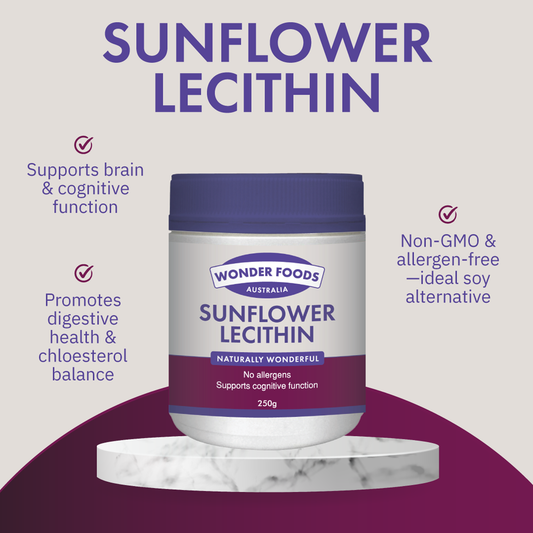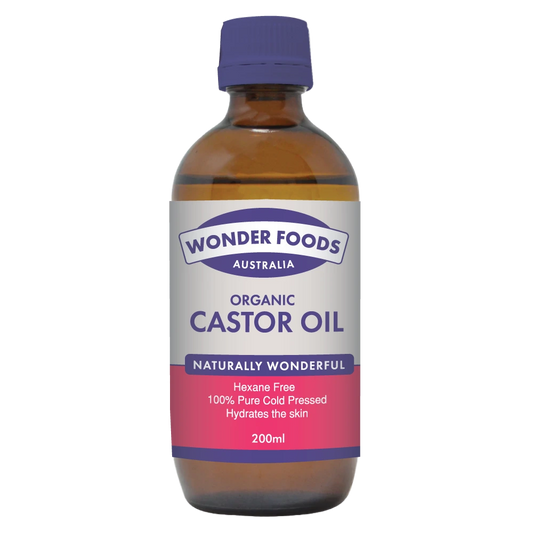
What's the Difference between Nitrates & Nitrites?
Nitrates and nitrites are two different types of compound:
- Nitrates (NO3) consist of one nitrogen atom and three oxygen atoms.
- Nitrites (NO2) consist of one nitrogen atom and two oxygen atoms.
Nitrates are relatively stable and are unlikely to cause harm.
Nitrites have a high toxicity level.
What do Nitrates do to your Body?
Nitrates are compounds that occur naturally in your body and in some foods.
Your body can convert the nitrate into nitric oxide, which will dilate (expand) your blood vessels, and lower your blood pressure.
Moreover, they may enhance your physical performance, especially in endurance sports.
That's why so many endurance athletes like AFL players and runners supplement with Beetroot powder.
Why are Nitrites bad for my Body?
Nitrites on their own may not pose a direct risk, but they can break down into compounds called nitrosamines, which have been linked to an increased cancer risk.
Research shows that consuming vegetables rich in natural nitrates can help lower the risk of some chronic conditions, while foods high in added nitrates may present health risks.
Why the difference?
Experts suggest that antioxidants, like vitamin C, in nitrate-rich vegetables (like beetroot) help prevent the formation of nitrosamines.
When your body processes nitrates from vegetables, it primarily produces nitric oxide rather than nitrosamines.
Nitric oxide supports healthy blood flow, blood pressure, heart health, and aids in hormone and signalling molecule production.
The nitric oxide also seems to help with erectile dysfunction.
However, foods high in added nitrates, such as processed meats, lack sufficient antioxidants to prevent the breakdown into nitrosamines.
Are Nitrates good for Hypertension (high Blood Pressure)?
This randomised, phase 2, double-Blind, placebo-controlled study showed that just four weeks of daily beetroot supplementation improved blood pressure scores for all their patients and it was well tolerated by the subjects.
Their conclusion was "these findings suggest a role for dietary nitrate as an affordable, readily-available, adjunctive treatment in the management of patients with hypertension."
Can Nitrates help with Erectile Dysfunction?
Erectile dysfunction is a common condition in middle-aged and older men and is a strong predictor of coronary artery disease. Nitrate supplements can be prescribed by your Health Practitioner to treat ED.
Research has found that nitric oxide plays a key role in facilitating erections by relaxing the vascular muscle that supplies your penis with blood when you're sexually aroused.
This increase in blood vessel diameter and blood flow is what allows your penis to stay firm and erect while you're having sex.
Can Nitrates help with:
Peripheral Artery Disease (PAD)
Beetroot may help improve blood flow to the extremities, alleviating symptoms of PAD, a condition where blood flow to the limbs is restricted.
Chronic Obstructive Pulmonary Disease (COPD)
Nitric oxide can improve oxygen uptake and lung function, potentially benefiting those with COPD by enhancing exercise tolerance and respiratory function.
Cognitive Decline and Dementia
Increased blood flow to the brain from nitrates may support cognitive function and memory, potentially slowing age-related cognitive decline and benefiting conditions like dementia.
Diabetes-Related Circulatory Issues
Improved blood flow can help address circulatory issues in people with diabetes, such as poor blood circulation in the legs and feet.
Chronic Fatigue Syndrome (CFS)
Enhanced oxygen delivery from nitric oxide may support energy levels and reduce fatigue, potentially aiding those with Chronic Fatigue Syndrome.
Exercise-Induced Fatigue and Muscle Soreness
Nitrates can help reduce oxygen cost during exercise, potentially improving endurance and reducing Delayed Onset of Muscle Soreness (DOMS), especially beneficial for athletes or individuals experiencing exercise-related fatigue.
Asthma and Respiratory Issues
Beetroot nitrates may support respiratory function by improving oxygen efficiency, potentially aiding individuals with asthma or respiratory conditions during physical activity.
What Foods are high in Nitrates?
Beets and celery, along with dark leafy greens like spinach, kale, and romaine lettuce are packed with nitrates.
These vegetables also provide Vitamin C and other antioxidants, which help prevent the formation of harmful N-nitroso compounds.
Disclaimer
The information provided in this blog post is intended for general knowledge and educational purposes only.



